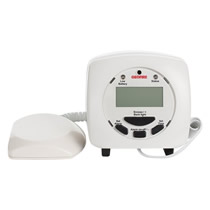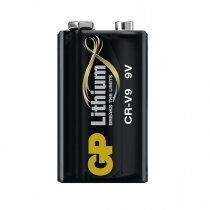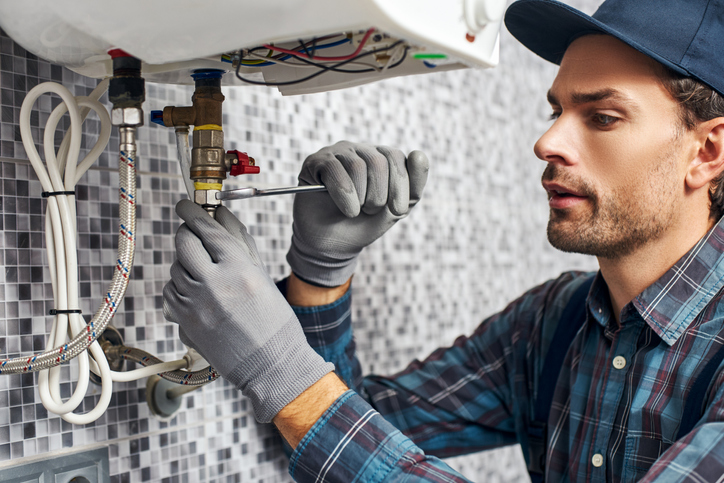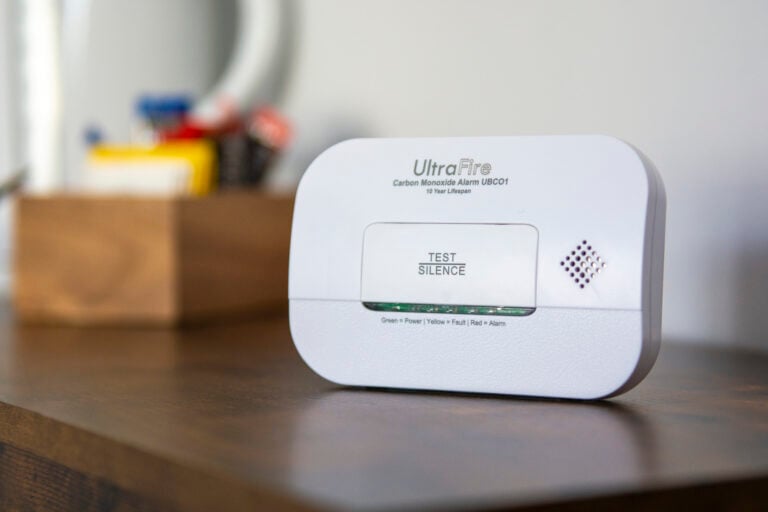-
Contact
Sales & Customer Service
0800 612 6537 support@safelincs.co.uk Live ChatDelivery Enquiries
0800 077 6149 - Resources
Fire & Safety Solutions
CALL OUR TEAM NOW 0800 612 6537
Lines open today 8am - 6pm
Free Delivery
on 100s of Products
Live Chat - Online
Instant help & Advice
Trade Discounts
and exclusive pricing
0% Credit Available
Open an account now
5 Star Customer Feedback
Special Offers on Smoke, Fire & Gas Detection
Your home's first line of defence against fire starts with reliable smoke detection. When every second counts, you need smoke alarms that respond fast and work without fail. Smoke alarms save lives - they're your early warning system, giving you precious time to escape when fire strikes. In the UK, working smoke alarms reduce your risk of dying in a house fire by half. We stock optical smoke alarms and heat detectors, each responding to different fire conditions, allowing you to choose the right protection for each room. What types of smoke detectors work best? Optical smoke alarms excel at detecting smouldering fires, like those caused by cigarettes or electrical faults. They're perfect for hallways, bedrooms and living areas where smouldering fires may be more likely. Heat detectors make sense in kitchens and garages where smoke alarms might trigger unnecessarily from cooking fumes or steam. Modern smoke detectors come equipped with features that enhance their reliability and user-friendliness. Look for units with long-life batteries, test buttons, and interconnected systems that sound throughout your home when one detects smoke. How often should you test your smoke alarms? Test your smoke alarms at least every month. Press the test button and listen for that loud, unmistakable beep. If it sounds weak or doesn't work, change the battery immediately. Clean your alarms every six months with a soft brush or vacuum cleaner attachment. Dust and debris can interfere with their sensors. Mains-powered units and battery-powered smoke alarms should be replaced after 10 years, as the sensors start to degrade, affecting the performance of the alarm. Where should you install smoke alarms? Install smoke alarms on every level of your home, including the basement. Put them in hallways outside bedrooms and sleeping areas. Mount them in the centre of the ceiling, because smoke rises. Avoid placing them near windows, doors or air vents where draughts might interfere with detection. In larger homes, consider interconnected smoke alarms that communicate with each other. When one detects smoke, they all sound, giving everyone maximum warning time. This is particularly important in multi-storey homes where you might not hear an alarm from another floor. What about gas detection? Natural gas detectors alert you to gas leaks before they become dangerous. They're instrumental in kitchens, utility rooms, and other areas where gas appliances are present. Some units detect multiple gas types, providing comprehensive protection in a single device. How do you choose the right fire detection system? Consider your home's layout, your family's needs, and your budget. Battery-powered units offer flexibility and easy installation. Mains-powered systems provide continuous protection, eliminating the need to worry about battery life. For comprehensive coverage, combine different detector types throughout your home. Think about special requirements too. If someone in your household has hearing difficulties, consider vibrating or strobe light alarms. Smart smoke alarms can send alerts to your phone, making them ideal for rental properties or when you're away from home. Ready to protect your home and family? Browse our complete range of smoke alarms, gas detectors, and fire safety equipment. Every product meets British safety standards, and our expert team is here to help you choose the right protection for your home. Frequently Asked Questions (FAQs) Who is eligible for free smoke alarms in the UK? Some fire services across the UK offer free smoke alarms to residents who need them most. You may be eligible if you're over 65, have a disability or live in a high-risk area. People with mobility issues, sensory impairments, or health conditions that affect their ability to escape in case of fire may qualify for free alarms. Some areas also prioritise low-income families and those in social housing. Each fire service has its specific criteria, so please contact your local fire station or visit their website for more information. Many offer free home safety visits where they'll assess your needs and install suitable alarms at no cost. What's the difference between optical and ionisation smoke alarms? Optical smoke alarms use light sensors to detect smoke particles. They're excellent at spotting slow-burning fires from soft furnishings and are less prone to false alarms from cooking. Ionisation smoke alarms contain radioactive material and were traditionally used for fires that burn rapidly. However, they're being phased out across the UK due to safety and disposal concerns. We recommend optical smoke alarms for all locations where ionisation alarms were previously used. They're safer, more reliable, and work just as well for all types of fire. Where should I install smoke alarms in my home? You need at least one working smoke alarm on every floor of your home. Install optical smoke alarms in living rooms, bedrooms, and hallways where they can detect smouldering fires. Don't put smoke alarms in kitchens or bathrooms where steam and cooking fumes cause false alarms. Use heat alarms in kitchens instead - they detect temperature changes without false alarms. Mount alarms on ceilings in the centre of rooms, at least 30cm from walls and light fittings. This ensures they detect smoke as early as possible. What's the difference between smoke alarms and heat alarms? Smoke alarms detect smoke particles in the air and are perfect for living areas where fires typically start slowly. They give you the earliest warning when materials like furniture or wiring begin to smoulder. Heat alarms detect temperature changes and are ideal for kitchens and garages. They trigger when the temperature reaches approximately 55°C or rises rapidly, thereby avoiding false alarms caused by cooking. Both types are essential for complete protection. Use smoke alarms throughout your home, and heat alarms in kitchens and garages where smoke alarms would give false alarms. Do I need carbon monoxide detectors in addition to smoke alarms? Yes, it is always advisable to have at least one carbon monoxide alarm in your home. This is especially important if you have any fuel-burning appliances such as gas boilers, wood burners or open fires. CO is invisible and odourless but deadly. Install CO detectors in rooms with fuel-burning appliances and in hallways near bedrooms. Combined smoke and CO alarms can provide dual protection in a single unit. CO detectors need to be replaced every 5-10 years, depending on the type. Some detectors have sealed batteries that last the life of the device, while others require annual battery changes. For comprehensive guidance on keeping your home safe from gas-related risks, check out our detailed guide on gas safety for your home.
Read more about smoke, fire and gas detection...
Apollo XP95 Manual Call Point
- Supplied with an isolator and resettable element
- Complies with EN 54-11:2001
- Bi-coloured LED warning indicator
Kentec Sigma CP-R 2 Zone Repeater Panel
- Designed for use in conjunction with the Kentec Sigma fire alarm panels
- Available in two versions - mains powered or 24V DC
- Up to 7 repeater panels can be connected to one main control panel
Mains Powered 2 Smoke Alarms and 1 Heat Alarm Kit with Alkaline Back-up Batteries - Firehawk
- Power: 230V mains powered with alkaline back-up battery
- Back-up Battery: 3 x AAA alkaline batteries (included)
- Warranty: 6 year manufacturer's warranty
- Hardwire interlink with up to 12 Firehawk FHN devices in total
- Suitable for BS 5839-6: 2019 Grade D2 installations
- Compliant with Scottish 2022, Welsh Landlord 2022, and Northern Ireland Landlord 2024 legislation
Apollo XP95 Loop Powered Beacon
- Designed for indoor use
- High intensity LED
- Designed for connection to XFP and Kentec addressable fire alarm panels
- Suitable for use as a fire alarm system indicator
10 Year Life LED Carbon Monoxide Alarm - UltraFire UBCO1 Twin Pack
- Product Life: 10 years
- Battery: 2 x AA batteries included
- Warranty: 10 years
- LED indicators for alarm status
- CE marked and UKCA marked
- Certified to BS EN 50291-1 for domestic use
- Also suitable for the 2022 Welsh legislation
Hispec Deaf Aid with 2 Smoke, 1 Heat & 1 CO Alarm Kit
Providing protection from fire and carbon monoxide for your home with a high-intensity strobe light and wired vibrating pad to alert occupants with hearing impairments, the Hispec Mains Powered Deaf Aid Kit comes with two compatible optical smoke alarms, one heat alarm, and one carbon monoxide alarm.
- Warranty: 5 year warranty
- Radio-interlink up to 20 Hispec RF10-PRO Alarms
- The deaf aid control unit shows separate LED indicators for power, fault, fire, and carbon monoxide
- 2 x optical smoke alarms, 1 x heat alarm, and 1 x CO alarm included
- Compliant with Scottish 2022 and Northern Ireland Landlord 2024 legislation
Mains Powered 3 Smoke Alarms and 1 Heat Alarm Kit with Alkaline Back-up Batteries - Firehawk
- Power: 230V mains powered with alkaline back-up battery
- Back-up Battery: 3 x AAA alkaline batteries (included)
- Warranty: 6 year manufacturer's warranty
- Hardwire interlink with up to 12 Firehawk FHN devices in total
- Suitable for BS 5839-6: 2019 Grade D2 installations
- Compliant with Scottish 2022, Welsh Landlord 2022, and Northern Ireland Landlord 2024 legislation
10 Year Longlife Battery Heat Alarm - UltraFire ULLH10
Ideal for rooms like garages, kitchens, and lofts where dust or fumes would cause false activations of smoke alarms, the UltraFire ULLH10 features a sealed 10 year battery and 10 year manufacturer's warranty.
- Battery: 10 year sealed lithium battery
- Warranty: 10 year manufacturer's warranty
- Heat sensor suitable for kitchens and garages
BLACK+DECKER Carbon Monoxide Alarm - 10 Year Sealed Battery
- Product Lifespan: 10 years
- Battery: 10 year sealed lithium battery
- Warranty: 5 year warranty
- Suitable for free standing or wall mounting
- Certified to BS EN 50291-1 (domestic use)
- Certified to BS EN 50291-2 (caravans / boats)
BLACK+DECKER 10 Year Sealed Battery Smoke Alarm
- Battery: 10 year sealed lithium battery
- Warranty: 5 year warranty
- Optical smoke sensor technology
- Features a combined test / hush button
- Suitable for BS 5839-6: 2019 Grade F1 installations
- Kitemarked to BS EN 14604: 2005
Geofire Agrippa Acoustic Digital Pillow Alarm
- Portable device - ideal for hotels and other commerical enterprises
- Acoustically triggered by the sound of a BS 5839-1 system
- Ideal for the hard of hearing and deaf, and features a built in alarm clock
- Powered by standard AA batteries
- Stylish yet functional design
BLACK+DECKER 10 Year Sealed Battery Heat Alarm
- Battery: 10 year sealed lithium battery
- Warranty: 5 year warranty
- Heat sensor technology
- Features a combined test / hush button
- Suitable for BS 5839-6: 2019 Grade F1 installations
- Conforms to BS EN 5446-2: 2003
BLACK+DECKER Carbon Monoxide Alarm - 10 Year Sealed Battery - Twin Pack
- Product Lifespan: 10 years
- Battery: 10 year sealed lithium battery
- Warranty: 5 year warranty
- 2 x BLACK+DECKER CO alarms supplied
- Suitable for free standing or wall mounting
- Certified to BS EN 50291-1 (domestic use)
- Certified to BS EN 50291-2 (caravans / boats)
9V Duracell Procell Alkaline Battery
- 9V Alkaline Battery
- Suitable for smoke alarms and 9V products
- Low cost replacement battery
BLACK+DECKER RF Interlink Alarm Control Unit
- Power: 10 year sealed lithium battery
- Wirelessly control up to 19 BLACK+DECKER alarms
- Alarms sold separately
- Indoor range up to 30m
- Function to test, locate, and silence
Hispec Deaf Aid with 3 Smoke, 1 Heat & 1 CO Alarm Kit
The Hispec Mains Powered Deaf Aid Kit comes with three compatible optical smoke alarms, one heat alarm, and one carbon monoxide alarm. Provide fire and carbon monoxide protection for your home with a high-intensity strobe light and wired vibrating pad to alert occupants with hearing impairments.
- Warranty: 5 year warranty
- Radio-interlink up to 20 Hispec compatible alarms
- Control panel for the deaf aid kit shows separate indicator LED's for power, fault, fire, and carbon monoxide
- Kit includes 3 x Optical smoke alarms, 1 x Heat alarm, and 1 x CO alarm
- Compliant with Scottish 2022 and Northern Ireland Landlord 2024 legislation
STI 9624- 225x140x120mm Vandal Cage Beam Fire Detectors
- Suitable for beam detectors with maximum dimensions (HxWxD) of: 220x135x115mm
- Constructed from heavy duty 9 gauge galvanised steel
- Durable plastic coating allows external application
Mains Powered 2 Smoke Alarms and 1 Heat Alarm Kit with Alkaline Back-up Battery - Kidde Firex KF Series
- Power: 230V mains powered with alkaline back-up battery
- Back-up Battery: 9V alkaline battery (included)
- Warranty: 6 year warranty
- Hardwire interlink with up to 24 devices
- Suitable for BS 5839-6: 2019 Grade D2 installations
- Also suitable for both the Welsh and Scottish 2022 legislation
BLACK+DECKER RF Interlink Carbon Monoxide Alarm - 10 Year Sealed Battery
- Product Life: 10 years
- Battery: 10 year sealed lithium battery
- Warranty: 5 year warranty
- Connect up to 20 devices from the same range
- Certified to BS EN 50291-1 for domestic use
- Also suitable for both the Welsh and Scottish 2022 legislation
GP Long Life Lithium Battery
- Long life Lithium 9V battery
- Suitable for smoke alarms and CO alarms
- Capacity 800mAh
Smoke, Fire & Gas Detection
Related Blogs & Guides
Smoke, Fire & Gas Detection
Kitemarked, CE marked, and UKCA marked smoke, fire, CO and gas detectors and systems for home and business from the world's leading manufacturers. Domestic alarms for the home and travel from Kidde, FireAngel, Ei Electronics (Aico), Hispec, and Firehawk. Conventional, addressable, and wireless fire alarm systems for business from Apollo, Advanced, CFP, Eaton, KAC, Zerio and more. Mobile site alarms for industry from Evacuator, Howler, Jewel and Firechief. Fixed and portable gas detection for hazardous environments from Drager, Analox, Nereus and AMS. Vandal and weather protection from STI and Vimpex.









































